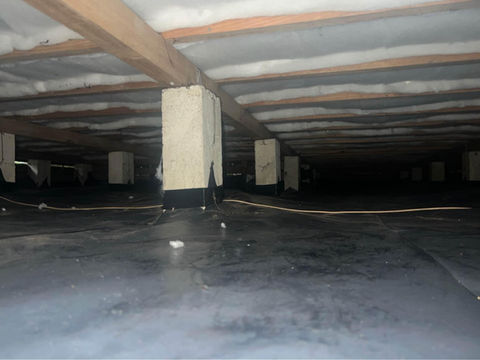
Existing Homes
There are many benefits to insulating your home. Installing ceiling and underfloor insulation is the single most effective thing you can do to keep your home warm and save you money in the long run.
Getting your home insulated is as easy as a phone call to us and we take care of the rest. Give us a call and we can have one of our friendly, honest and reliable team members over to do a inspection of your current insulation , measure your property and get you a free quote.
We can provide you with knowledge on many insulation products and different R values that best suits your needs and wants.

Ceiling
Insulation
Inadequate roof insulation is the primary reason for heat loss and gain in your home throughout the year. During winter, up to 40% of your home's heat can escape through the roof, making it challenging and costly to maintain warmth.
Properly insulating your roof cavity significantly reduces the transfer of heat between your living space and the outdoors, resulting in a warmer home in winter and a cooler one in summer.


Wall
Insulation
Around 25 percent of heat loss from a typical uninsulated home occurs through the walls.
After insulating your ceilings and underfloor, it's wise to prioritize wall insulation. If you're removing cladding or linings for any reason, this presents an ideal opportunity as it's the most straightforward and cost-effective time to add insulation.
The amount of insulation you can add will vary based on the thickness of the walls and the dimensions of the framing.
Underfloor
Insulation
About 10-14% of heat loss from an average home occurs through the ground floor. If your floor isn't already insulated, adding insulation can help reduce your energy bills.
Traditionally, underfloor insulation has been considered a luxury in New Zealand, but it plays a crucial role in your home's thermal efficiency.
In newer homes, underfloor insulation is typically integrated into the slab design. For older homes lacking underfloor insulation, polyester insulation blankets are highly recommended.


Acoustic
Insulation
From traffic noise and neighborhood commotion to unwanted echoes within rooms, excessive noise can be a significant nuisance in any environment. Enhancing the tranquility of your space involves adding acoustic insulation to walls and ceilings.
Various types of acoustic insulation are engineered to deflect, absorb, and reduce noise, thereby maintaining more comfortable sound levels.
Expert Insulation specializes in acoustic insulation solutions for homes. We provide complimentary property assessments and expert advice on the most effective methods for soundproofing your home.
Ground Moisture
Barrier
Don't forget to install a moisture barrier on the ground. Research by BRANZ indicates that 0.4 liters of water can evaporate from 1 square meter of ground in 24 hours – averaging to 60 liters per day for a typical 150 square meter house. This moisture can damage your insulation and lead to dampness issues in your home.
Under the new Healthy Homes Standards, if a rental property has an enclosed subfloor, installing a ground moisture barrier is required if reasonably feasible. All private rentals must comply within 90 days of any new or renewed tenancy after 1 July 2021, with all private rentals needing to comply by 1 July 2024.



















